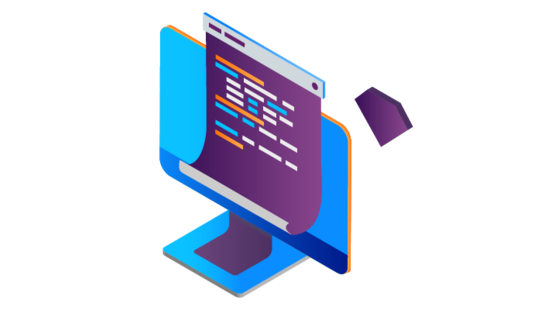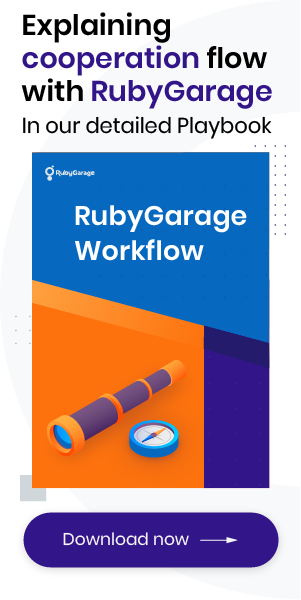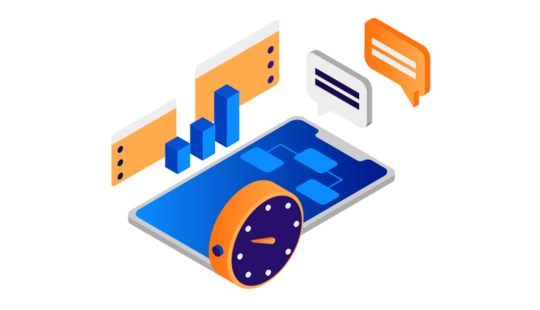-
Product Management
Software Testing
Technology Consulting
-
Multi-Vendor Marketplace
Online StoreCreate an online store with unique design and features at minimal cost using our MarketAge solutionCustom MarketplaceGet a unique, scalable, and cost-effective online marketplace with minimum time to marketTelemedicine SoftwareGet a cost-efficient, HIPAA-compliant telemedicine solution tailored to your facility's requirementsChat AppGet a customizable chat solution to connect users across multiple apps and platformsCustom Booking SystemImprove your business operations and expand to new markets with our appointment booking solutionVideo ConferencingAdjust our video conferencing solution for your business needsFor EnterpriseScale, automate, and improve business processes in your enterprise with our custom software solutionsFor StartupsTurn your startup ideas into viable, value-driven, and commercially successful software solutions -
-
- Case Studies
- Blog
The Best Websites Built with Ruby on Rails
As a company that mostly works with Ruby and Ruby on Rails, we can’t help but admire successful software built with Rails. Surely, there are many factors that affect a project’s success. But the influence of the right technology stack shouldn’t be underestimated.
Tobias Lütke, the CEO of Shopify, once said, “It’s crazy people are suggesting Shopify has been successful despite Rails. Shopify has been successful because of Rails.” Inspiring? Let’s look at some famous projects made with Rails and see why this framework is good for development.
Ecommerce platforms
Shopify

Shopify is an inspiring example of a complex yet well-structured and user-friendly ecommerce platform made with Ruby on Rails. And it’s absolutely rocking. In short, it’s a software-as-a-service (SaaS) platform that provides entrepreneurs the opportunity to create a secure online shop with a broad range of functionality and choose from about 100 payment gateways. For advanced users, there’s an opportunity to edit design templates. Shopify claims that there are currently about 820,000 sellers using the service. Profit for 2018 is estimated at $1.073 billion.
Gumroad

Gumroad is a sales platform for self-made digital content: music, photos, books, video lessons, etc. The service is simple to use for buyers. Sellers can simply log in via Facebook or Twitter, enter a link to any type of content (or upload it), set a price, and get a link that can be used on any external site. In 2018, more than 45,000 sellers earned about $204 million with Gumroad.
Service marketplaces
Airbnb

Airbnb is the world’s largest reservation service dealing with private property owners. Rentals include rooms, apartments, houses, and even garden tents. The service began when a couple of students who didn’t have enough money for housing rented a room with an airbed. The very name Airbnb means “airbed and breakfast.” The website is built with Ruby on Rails and is actively being developed, offering users an intuitive interface and the ability to make payments directly through the service. Anyone who signs up for Airbnb can rent their apartment to someone else or reserve accommodation for an upcoming trip. Today, Airbnb has more than 6 million listings in 190 countries.
Couchsurfing

Couchsurfing is an alternative to Airbnb for those who want to save on accommodation when traveling. The website is developed with Ruby and the Ruby on Rails web framework. It was founded in 2003 by avid travelers and now has an audience of about 400,000 hosts and 15 million travelers. The idea is that a traveler can get a free stay on a couch (or sometimes even in a separate room) with a host. You shouldn’t count on luxurious accommodation for a free stay, but you can check if the host is polite and reliable based on other travelers’ feedback. To make sure you get on well, you can talk to your potential host online. The platform used to be absolutely free, but with its growth, the founders decided to charge $60 for verification. Verified status allows users to request a place to stay and send unlimited messages. Although hosts aren’t allowed to charge, travelers shouldn’t come empty-handed and should be communicative and neat. Couchsurfing not only provides opportunities to travel cheaply but also to make new friends around the world.
Fiverr

Fiverr is a worldwide freelance platform where clients can order a wide range of services like web design, content writing, and programming at affordable prices. Fiverr was founded in Tel Aviv, Israel in 2010 and got its name because it’s possible to get a small one-off project done for just $5. For orders under $20, buyers are charged $1; they’re charged 5% of the total for higher prices. Sellers are charged 20% of the order total. The platform is currently a leader among freelance platforms.
Crowdfunding platforms
Kickstarter

Most people know of Kickstarter, a platform for independent microfinancing. Kickstarter is known as a crowdfunding platform, which, according to the creators, enables small businesses to create grandiose projects. Kickstarter uses a sophisticated system of microfinancing connected to a social network. But instead of likes, users have the opportunity to support promising projects with a reasonable amount of money. Designed on Ruby on Rails in 2009, Kickstarter annually collects tens of millions of dollars for projects around the world, including various kinds of web development. The Kickstarter interface is simple and accessible, and the exploitation associated with primary features within its adequate implementation. Integration with payment systems provides additional value.
Indiegogo

Indiegogo is a crowdfunding platform based on the principles of openness, transparency, and freedom of choice and action. The project was launched in 2008 and is the ancestor of Kickstarter. Initially, it specialized in fundraising for independent films; later, it expanded to all industries and became the first international crowdfunding platform. Indiegogo finances any projects partially or completely, without restrictions. Projects may be in the spheres of technology (even without a prototype), entertainment, education, or charity.
AngelList

AngelList is a networking platform that matches startups with talents, investors, and customers. It was founded in 2010 in the US by two entrepreneurs, Naval Ravikant and Babak Nivi. The company doesn’t charge commission from startups to help them raise capital. There are fees only for investors and commission on earnings from investments made through the platform. In 2018, AngelList announced that during the last two years they had helped about 2 million candidates get startup jobs. Over 75% of startups that got investment from US investors in 2018 did so with AngelList. This service is a great example of when Rails not only fits startup development but contributes to startup communities, helping them grow and prosper.
Software development and management platforms
Basecamp

Basecamp, a popular project management service, was also based on Ruby on Rails. In fact, the Ruby on Rails framework itself was created while developing this project. Since the release of Ruby on Rails in 2004, it has been constantly improving: developers provide access to APIs, support mobile clients, and constantly present widgets and plugins for integration with third-party products. Among the main advantages of Basecamp are its ease of use and intuitive interface, integration with popular software development services, and ability to create custom add-ons. Each Basecamp project includes features to set up a discussion, add text or other documents, and manage task lists and a calendar. In recent years we’ve seen plenty of Basecamp alternatives, but few customers have left Basecamp. On the contrary, the number and quality of projects is constantly increasing. Today, there are over 3 million active accounts on Basecamp.
GitHub

It’s notable that GitHub, one of today’s most popular services for programmers, is also implemented in the Ruby programming language and using the Ruby on Rails framework. GitHub is used by developers to share their projects, develop collaboratively, and keep track of version histories. Any user can create a repository on GitHub to store a project and share it with others. Collaborators can browse project files and source code with syntax highlighting and download or change the archetype. GitHub membership allows users to participate in a variety of open-source projects. Today, millions of people use GitHub.
GitLab

GitLab is a single application that covers the entire DevOps lifecycle: an application for the whole development team to manage projects and work on code together. As Dmitry Zaporozhets, the cofounder of GitLab, was inspired by GitHub, he chose Ruby on Rails for its development. “It worked out really well because the Ruby on Rails ecosystem allows you to shape a lot of functionality at a high quality,” says Sid Sijbrandij, the CEO of GitLab. Hosting repositories for over 100,000 users, GitLab is a leader in the Git market.
Heroku
Heroku is a cloud platform (PaaS) that provides an environment for developing web applications in eight programming languages (including Ruby) and scalable application hosting. The core of the website and its interface is based on Ruby and Ruby on Rails. The service lets users focus on development rather than making solutions from scratch.Founders began to work on Heroku in 2008 with $20,000 in investment. While Heroku is a bit pricier than competitors, users rate it 9 out of 10 stars for its rapid deployment, wide range of tools, helpful community, and amazing price/quality ratio.
Online libraries
Scribd

Scribd is a service for storing digital documents. Founded in 2006, it positions itself as a library of scientific articles and a tool for the viral spread of presentations. Now it contains bestsellers, audiobooks, music, magazines, ebooks, and more. The project is aimed at conservative users who see the internet not as a “new universe” but as a modernized analog of a library. Scribd now is a fully operational social network. Its users have a sufficient number of communication tools integrated into the interface. Anyone can subscribe to a particular author and read other users’ documents (which can be uploaded for free) in news feeds or using search. Scribd includes avatars, contacts, profiles, rankings, statistics, and recommendations. There’s a free 30-day trial, after which users are charged $8.99 for a monthly subscription.
Blinkist

Blinkist is an online service for reading more books faster – or as the platform calls them, books-in-blinks. Blinkist is made with Ruby on Rails. It contains condensed versions of over 3,000 bestsellers in different genres. The paid version allows users to read with no limits, including offline, send their readings to Kindle, synchronize with Evernote, and more. With the free version, users get access to one preselected reading per day. One book-in-blink takes up to 15 minutes to read and is accompanied by an audio track. Currently, 10 million people are reading with Blinkist. The service can’t replace reading books in full, but it’s a great way to discover new books, authors, and ideas.
Educational & networking platforms
Dribbble

Dribbble is a social network for designers. The main feature of this service is that users can only share small screenshots of designs and applications: so-called shots. In addition, users can subscribe for updates from a particular designer, comment on and like posts (shots), and so on. From the viewpoint of functionality, Dribbble is a common social network with a news feed, commenting, voting, and tags. It’s a never-ending source of inspiration.
Codecademy

Сodecademy is one of the most popular services providing programming courses. Sets of lessons teach learners to write simple functions and create more complicated applications over time. Codecademy is attractive for its simplicity, interactivity, and gamified learning system. The service has both free courses and paid subscriptions. The paid option offers live support, customized study plans, and realistic projects. Since its founding, Codecademy has helped more than 45 million people worldwide.
Exercism.io

Exercism.io is another platform for learning programming languages. What’s special about this one is it’s absolutely free. The platform’s director, Katarina Owen, created Exercism.io in 2013 when she was teaching programming to provide her students with feedback on tasks. Exercism gained popularity, and now anyone can learn about 50 programming languages there. To help the project, users can become mentors or maintainers and report issues on GitHub.
Treehouse

Treehouse is an online programming school founded in 2011 in the US. It offers courses in programming and design to individuals and teams from beginner to advanced levels. Treehouse claims that courses for beginners can help students gain an entry-level job. During the study process, students are provided with live weekly mentoring and support through the platforms’ Slack community. Treehouse also provides on-demand courses for teams that want to boost their knowledge and learn the latest trends. The fact that many users rate the school highly and that companies such as Twitter, Airbnb, and AOL work with the platform proves its professionalism.
Wrapping up
As you can see, many world-known companies from many industries – including online education, travel, crowdfunding, and ecommerce – choose Ruby on Rails because:
- It saves development time thanks to lots of ready-made solutions (Ruby gems) for typical development tasks, from authorization and authentication to checking code quality. Thus, it’s a great choice for startups and MVPs.
- Rails scales horizontally, so you don’t have to worry if your web application grows. With Rails, you can break it into blocks, move data to side servers, and add more functionality without losing speed and quality.
- Ruby on Rails code is readable and beautiful, favoring convention over configuration.
- Finally, Ruby on Rails is secure, with certain security features built into the framework.
By choosing Ruby on Rails, you get fast, secure, and cost-efficient app development.
If you’re interested in developing a quality software product, contact us.










